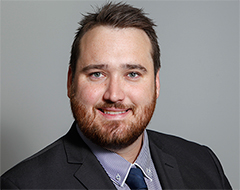 A big part of our practice is helping people navigate what to do after someone has passed away.
A big part of our practice is helping people navigate what to do after someone has passed away.
We refer to this as “administering deceased estates”.
We help executors of Wills understand their obligations and take care of all of the heavy lifting for them.
Where there is no Will we help the next of kin, usually referred to as an “administrator” do the same thing.
If someone has passed away and you are in a position where you think you need to take steps in relation to the estate, here are some tips that might help:
1. In most cases, there is no hurry to formally get things underway. While of course there are some time limits that apply, there is no problem with taking the time to grieve, get through the funeral and start the estate administration process once all of that is taken care of.
2. The first step in starting the process is to find out whether or not the deceased person had a Will. The most common way to do this is to conduct a search of their papers and see if you can find a reference to a law firm or in some cases a copy of a Will or the original document itself. Quite often people will have solicitors draw up Wills for them and they will store the original at the solicitor’s office, so if you know the deceased person had a regular lawyer you might contact them to ask whether or not they held a Will. Note, in most cases where a person had assets but there is some doubt over whether or not they had a Will the solicitor you engage will contact local solicitors to see if they hold a Will for the deceased, and they will also contact the New South Wales Trustee and Guardian and the major banks which are other common places that people store their Will.
3. The next thing you should start to do is start to gather a list of assets and liabilities. Most of the time, your solicitor will want to write to each of the asset and liability holders to determine the exact nature of the asset or liability. It is really helpful to take copies of any bank statements, statements from other asset holders, outstanding bills or any other document that references an asset or liability and associated account or other reference number to point your solicitor in the right direction when making their inquiries. These documents do not have to be the most recent version. Often an older document discovered amongst a deceased person’s papers can lead to the discovery of previously unknown assets.
4. If a Grant of Probate or other representation is required, an application to the Supreme Court of New South Wales cannot be made until the original Death Certificate is received. That is not to say that you cannot start to do the leg work in the meantime, but you should make sure a Death Certificate is ordered as soon as possible. In most cases, the funeral director who conducts the funeral will order a Death Certificate.
5. If there is real estate that forms part of the deceased person’s estate and they did not live with another person you should take steps to make sure the property is secure. Deceased estate properties are often at risk of things like burglary if people notice that no one is home. This is particularly the case where there are valuables stored in the home. You should also consider things like collecting mail and mowing lawns so as not to give the impression that the property has been abandoned.
6. The manner in which a deceased person’s estate is administered depends on the nature of the assets they held. For example, wherever real estate was held by a deceased person either in their sole name or as in tenants in common a Grant of Probate or other grant of representation must be obtained – there is no way around this. This is also the case where a deceased person held significant other assets in their sole name, such as large amounts of money on deposit with a bank or financial institution.
If you have questions about a deceased estate, including contesting a Will or defending a contested Will, get in touch.

Daniel McKinnon
Since graduating with two degrees in Law and Commerce from the University of Wollongong, Daniel’s spent over ten years solving a wide range of legal problems for the people of Western Sydney.
